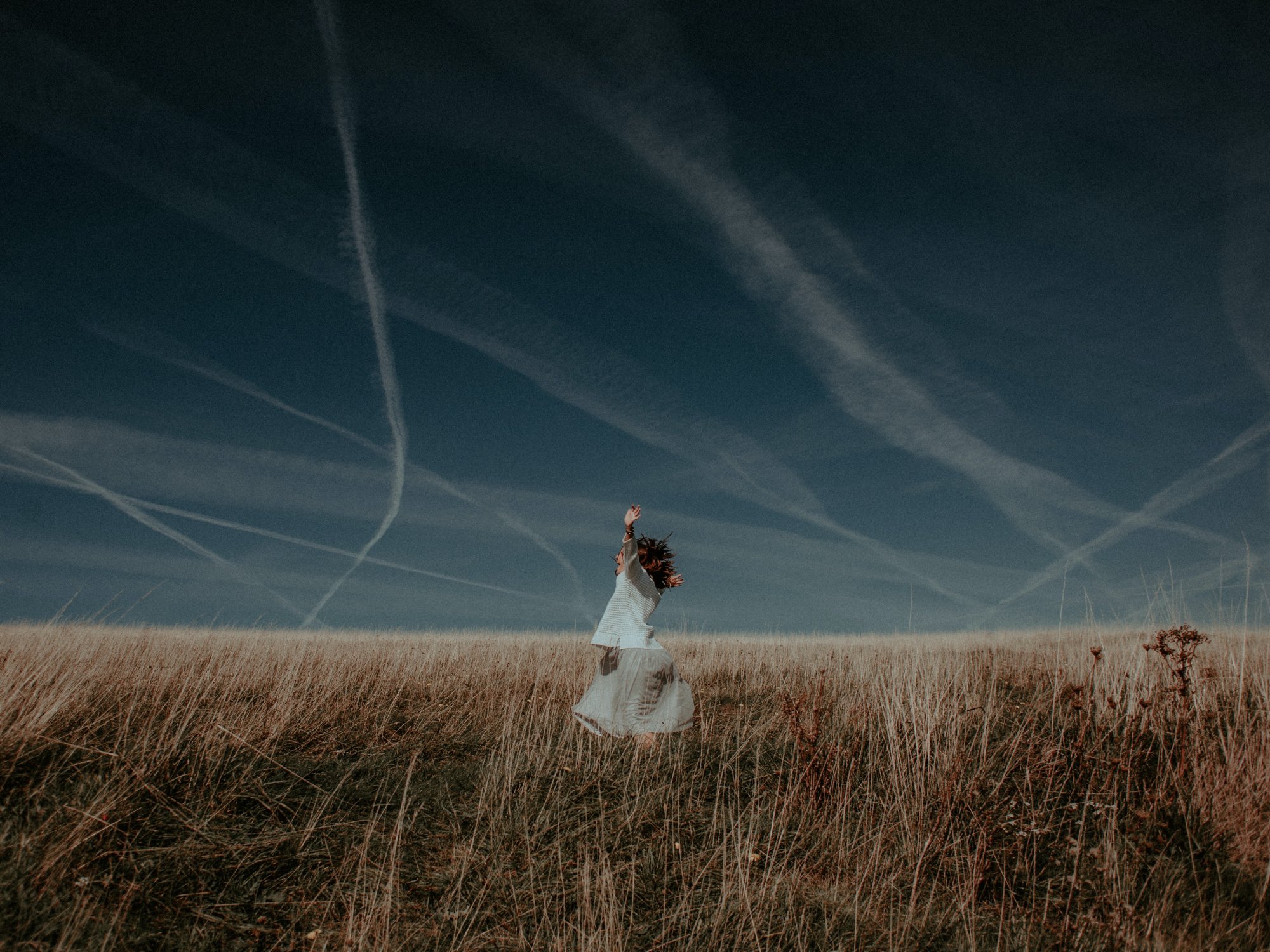
Writing in English and Portuguese, Flávia Ghelardi discusses how we can choose true freedom in God.
Flávia Ghelardi writes from Brazil in English and Portuguese. Vá para a versão em português.
Human life is the greatest gift received from God. It is an immense grace to be able to exist and say: I am! I exist! After life, the greatest gift we receive is freedom. Freedom is what enables us to fulfill our greatest vocation: to love and be loved. Without freedom, love is impossible. Only those who are free can love, can give themselves to the other, can prove their love through sacrifice and donation.
We are born free externally; that is, we are not slaves, owned by anyone. However, inner freedom, that which enables us to love, needs to be achieved. We were born tied to our desires and our whims: selfish, slaves to our own selves. The Catholic Church teaches that this happens because we were born with “original sin.” In that sin, man preferred himself to God and by that very act scorned Him. He chose himself over and against God, against the requirements of his creaturely status and therefore against his own good. Constituted in a state of holiness, man was destined to be fully "divinized" by God in glory. Seduced by the devil, he wanted to "be like God," but "without God, before God, and not in accordance with God" (Catechism of the Catholic Church § 398)
Pope Benedict XVI explains that original sin is a relational sin, since it rejected and damaged the relationship between the Creator and his creature, because it wants to make the human being a god. Each of us enters a situation in which relationality has been hurt. Consequently, each person is, from the very start, damaged in relationships and does not engage in them as they should. Sin pursues the human being, and he or she capitulates to it.[1]
To get rid of these consequences of sin, we need to fight to restore the order God wanted for human nature: the condition of being a child of God must dominate our intelligence and will, which must dominate our instincts. When we are born, our instincts (hunger, cold, fear, and so on) dominate our being entirely. As we grow and mature, we need to learn to master these instincts and allow the light of grace to illuminate our intelligence to distinguish what is good for us and strengthen our will to act on that inspiration.
Only with this exercise of mastery of instincts will we really be free to be able to love and be happy. It is not a matter of "repressing" desires or living as if those desires did not exist, but of directing and ordering them. Imagine a person who cannot see a piece of cake without "needing" to eat it. It does not matter if she suffers from diabetes or another evil derived from the consumption of sweets: when she sees the cake, she goes and eats. Is this person free, or has she become a slave to her desire for sweets? Another person "explodes" in rude ways at the slightest annoyance that comes her way. Whoever lives with her is always walking on eggshells, anxiously waiting for the next explosion. Is that person free or dominated by circumstances?
Love requires that we come out of ourselves to give ourselves to another. In this way, those who are slaves to their own desires find it very difficult to love, and those who do not love cannot be happy. This struggle must begin first with the decision to overcome these instincts. Then, we must choose only one point to be tackled with a very concrete purpose, the fulfillment of which can be assessed at the end of the day. When we have mastered that point, then we move on to the next. And so we continue until the end of life! For example: those who have difficulty controlling instinct of eating, can, at least for one meal of the day, renounce to eat something they like or exchange juice for water during the meal or even eat only what served the first time on the plate. When that is no longer so difficult, you can increase to two meals a day, then to a stronger renunciation, such as not eating sweets during the week or exchanging a meal during the week for bread and water. Finally, it is advisable that we write down our purpose somewhere and every day; before going to bed, check whether we have fulfilled it or not. It also helps us to remember what we are committed to doing.
Other attitudes that we can have during the day to strengthen our will and to control our instincts are adding small annoyances, such as waiting a few minutes before drinking water when you are thirsty, waiting a little before turning on the air conditioning, taking a shower a little bit colder than you would like, wait a few minutes before looking at your phone in the morning, control the urge to comment on a publication, and so on. There are countless little things we can do to make ourselves stronger and freer.
It is very important to say that, without the help of grace, we will not advance. We need to ask insistently that our Lord Jesus Christ, who loved so much and was truly free, help us on this journey. We still need help to persevere, not to be discouraged when we fall and fail to fulfill our purpose. The essential thing is to get up and keep fighting! So, go ahead! Do not be enslaved by your own whims! We were created to be free and to love!
[1] [1]Ratzinger, Joseph, In the Beginning – A Catholic understanding of the story of creation and the Fall, Ed. Ressourcement, 1995, USA, pg. 72-73

NÃO SE DEIXE ESCRAVIZAR!
A vida humana é o maior dom recebido de Deus. É uma graça imensa poder existir e dizer: eu sou! Eu existo! Depois da vida, o dom maior que recebemos é a liberdade. A liberdade é o que nos capacita a realizarmos nossa maior vocação: amar e ser amado. Sem a liberdade, o amor é impossível. Só quem é livre pode amar, pode se entregar para o outro, pode provar seu amor através do sacrifício e da doação.
Nós nascemos livres exteriormente, ou seja, não somos escravos, propriedade de ninguém. Porém, a liberdade interior, aquela que nos capacita para amar, precisa ser conquistada. Nascemos atados aos nossos desejos e aos nossos caprichos, egoístas, escravos do nosso próprio eu. A Igreja Católica ensina que isso acontece pois nascemos com o “pecado original”. Neste pecado, o homem preferiu-se a si próprio a Deus, e por isso desprezou Deus: optou por si próprio contra Deus, contra as exigências da sua condição de criatura e, daí, contra o seu próprio bem. Constituído num estado de santidade, o homem estava destinado a ser plenamente «divinizado» por Deus na glória. Pela sedução do Diabo, quis «ser como Deus», mas «sem Deus, em vez de Deus, e não segundo Deus» (CIC § 398)
O Papa Bento XVI explica que o pecado original é um pecado relacional, já que ele rejeitou e danificou a relação entre o Criador e sua criatura, pois quis tornar o ser humano um deus. Cada um de nós entra numa situação na qual a relacionalidade está ferida. Consequentemente cada pessoa é, desde o começo, danificada nos relacionamentos e não se envolve neles como deveria. O pecado persegue o ser humano, e ele cede ao pecado.[1]
Para nos livrarmos dessas consequências do pecado, precisamos lutar para restabelecer a ordem desejada por Deus para a natureza humana: a condição de ser filho de Deus deve dominar a nossa inteligência e vontade que deve dominar os nossos instintos. Quando nascemos, nossos instintos (fome, frio, medo, etc) dominam inteiramente nosso ser. Conforme vamos crescendo e amadurecendo, precisamos aprender a dominar esses instintos e permitir que a luz da graça ilumine nossa inteligência para distinguir o que é um bem para nós e fortalecer nossa vontade para agir de acordo com essa inspiração.
Somente com esse exercício de domínio dos instintos é que realmente seremos livres para conseguirmos amar e sermos felizes. Não se trata de viver “reprimindo” os desejos ou de viver como se esses desejos não existissem, mas de direcionar e ordenar. Pensemos numa pessoa que não consegue ver um pedaço de bolo sem “precisar” comê-lo. Não importa se ela sofre de diabetes ou outro mal derivado do consumo de doces: quando ela vê o bolo, vai e come. Essa pessoa é livre ou se tornou escrava do seu desejo por doce? Outra pessoa “explode” e faz grosserias pela mínima contrariedade que aparece em seu caminho. Quem convive com ela está sempre “pisando em ovos”, angustiada esperando a próxima explosão. Essa pessoa é livre ou é dominada pelas circunstâncias?
O amor exige que saiamos de nós mesmos para nos doarmos ao outro. Desta forma, quem é escravo dos próprios desejos tem muita dificuldade de amar e quem não ama, não consegue ser feliz. Essa luta deve começar primeiro com a decisão de vencer esses instintos. Depois, devemos escolher apenas um ponto a ser combatido com um propósito muito concreto, cujo cumprimento pode ser avaliado no fim do dia. Quando conseguimos conquistar o domínio desse ponto, então passamos para o próximo. E assim seguimos até o fim da vida! Por exemplo: quem tem dificuldade em controlar a comida, pode fazer o propósito de, ao menos em uma das refeições no dia, renunciar de comer algo que gosta ou trocar o suco por água durante a refeição ou ainda comer apenas o que serviu da primeira vez no prato. Quando isso já não for mais tão difícil, pode aumentar para duas refeições no dia, depois para uma renúncia mais forte, como não comer doces durante a semana ou trocar uma refeição durante a semana por pão e água. Por último, é aconselhável que deixemos anotado em algum lugar o nosso propósito e todos os dias, antes de deitar-se, verificar se cumprimos ou não. Isso ajuda também a não esquecermos do que nos comprometemos a fazer.
Outras atitudes que podemos ter durante o dia para fortalecer nossa vontade e dominar os instintos é acrescentar pequenos incômodos, como por exemplo, esperar alguns minutos antes de beber água quando está com sede, esperar um pouco antes de ligar o ar-condicionado, tomar banho um pouco mais frio do que gostaria, esperar alguns minutos antes de olhar o celular de manhã, controlar o impulso de comentar em alguma publicação, etc. Enfim, são inúmeras pequenas coisas que podemos fazer para nos tornar mais fortes e mais livres.
É muito importante dizer que, sem a ajuda da graça, não avançaremos. Precisamos pedir insistentemente que nosso Senhor Jesus Cristo, quem tanto amou e foi verdadeiramente livre, nos ajude nessa caminhada. Precisamos ainda de ajuda a sermos perseverantes, a não desanimar quando cairmos e não conseguirmos cumprir os propósitos. O essencial é levantar-se e continuar lutando! Por isso, avante! Não se deixe escravizar por seus próprios caprichos! Fomos criados para sermos livres e amar!
[1] Ratzinger, Joseph, In the Beginning – A Catholic understanding of the story of creation and the Fall, Ed. Ressourcement, 1995, EUA, pg. 72-73
Copyright 2020 Flávia Ghelardi
Image: Flora Westbrook (2019), Unsplash
About the Author

Flávia Ghelardi
Flávia Ghelardi is the mom of four, a former lawyer already "promoted" to full time mom. Flávia published her first book FORTALECENDO SUA FAMÍLIA and is a member of Schoenstatt´s Apostolic Movement. Flávia loves to speak about motherhood and the important role of women, as desired by God, for our society. She blogs at www.fortalecendosuafamilia.blogspot.com.


.png?width=1806&height=731&name=CatholicMom_hcfm_logo1_pos_871c_2728c%20(002).png)
Comments